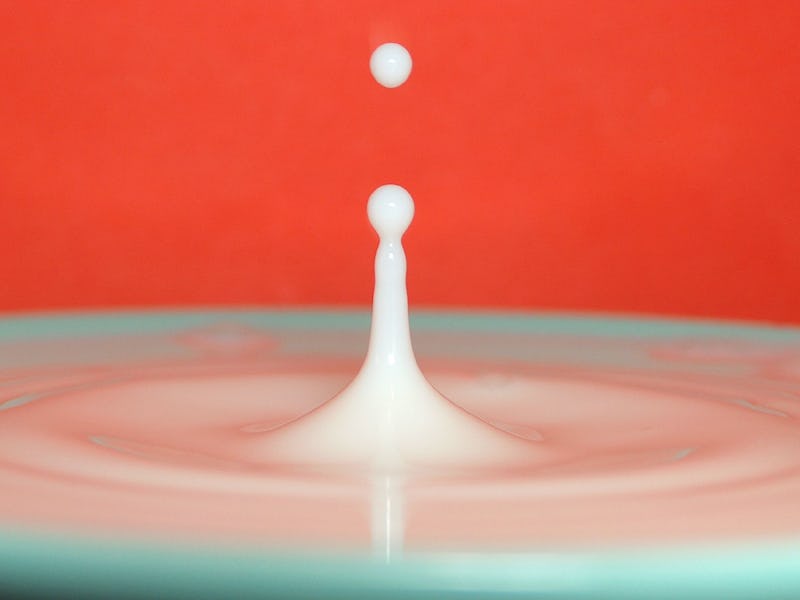Physics Helps Physicists See the World For What It Is
In her new book 'Storm in a Teacup,' Helen Czerski takes issue with the idea that anything is boring.

Without the laws of physics to tie the fabric of the universe, the whole thing would fall apart (more than it already has). In a general sense, we know this to be true, but understanding exactly how this is true — totally understanding the F=MA situation — require extraordinary expertise because ordinary experiences are really complicated. Look close enough and an overflowing coffee mug is almost debilitatingly complicated.
Unless you’re Helen Czerski — and there’s only a one in 7 billion chance you are.
A physicist and oceanographer at University College London, Czerski is an investigator of the banal. In her work, she seeks to understand the human experience in non-human terms. In her new book, Storm in a Teacup: The Physics of Everyday Life, she makes the mundane explosive.
Inverse spoke with Czerski about what it’s like to see the world for what it is and what it’s like to go about your life anyway.
What is the Inspiration behind this and how did it come together?
It wasn’t so much inspiration — that’s just the way I see the world. I’m a physicist because I like playing with toys and I like seeing how the physical world is. That’s the fun of it. So writing the book is just an extension of sharing my enthusiasm for playing with the physical world. It struck me that people are getting further and further away from physical reality in some sense with smart phones and touch screens. And those are brilliant tools, but they give people an excuse to retreat from the world around them.
Did you find that a lot of other people were discussing what you wanted to talk about in this book, or was this sort of a wide-open niche topic?
There are books that talk about little everyday things but they don’t really sketch a picture. There just kind of take a lucky dip, a little here, a little there — but there’s nothing about them that says there’s a bigger pattern here. And this is really how the universe works.
I didn’t see anyone else talking about it. In fact, there’s a lot of snobbishness when it comes to these things — like it somehow has to be distant and elite to be cleverly articulated. If you’re talking about tea cups, it’s somehow not proper science, not “hard enough.” But it is hard, because there’s just as much beauty and sophistication in the real world as there is in any other area of science. It doesn’t have this aura of elitism attached to it.
Big stuff is cool in a way that little stuff isn’t. Galaxies are pretty awesome compared to popcorn. Does that account for the lack of conversation around everyday physics?
We have a body, a planet, and a civilization. Each of those is keeping us alive. To understand those systems you need to understand the complexities of the everyday, not quantum mechanics or cosmology. And that’s an active area of research. So it’s also not that it’s just about toys or even about luxury. This is understanding how your world works. It’s stuff that citizens need to know.
How did you come to choose what stories you wanted to write about? What was the decision making process?
I just picked the fun ones. It really was just the fun, interesting stuff. I didn’t pick anything that grand. I didn’t spend a huge amount of time selecting. I was very careful that they came in a range of different topics. I mean, it’s deliberately a smorgasbord of a book. If you look at the index, it’s bonkers: dolphins, clarinets, cultures…
That is because of the range of places these patterns turn up in the everyday world. It’s not limiting. I wanted to give the impression, because it’s correct, that there is no limitation to these patterns. The same physical patterns apply in lots of different places. It’s wonderful that the same pattern turns up in cake and the internal combustion engine and popcorn and whales and rockets and the winds of Antarctica. You know there’s a joy in that, which is brilliant.
This is starting to feel less about seeing physics in the world and more about seeing beauty.
This framework for understanding how the world works gives you a different perspective and it is quite often a very beautiful perspective. Scientists don’t talk about it enough.
Sounds like you want people to take the same joy in this that you do.
You learn a fact and it changes the way the world looks to you. You become much more capable of dealing with the world, you have these tools that will help you make decisions. The other thing is that when you find patterns in new places and you worked them out yourself, that is immensely rewarding. I think that gives people a lot of confidence in themselves and their relationships with the everyday world.